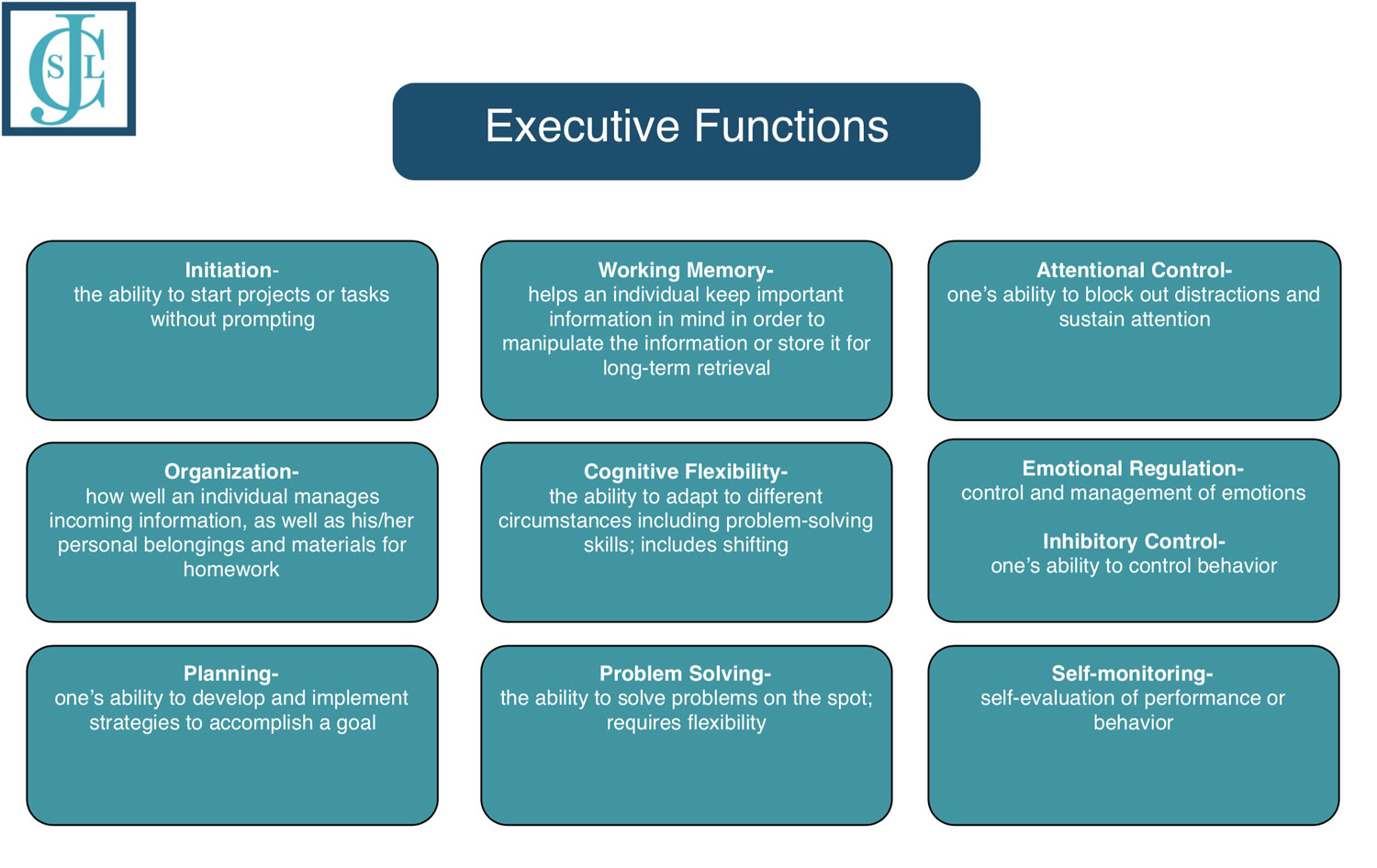Executive
Functioning
Speech-language Pathologists are uniquely qualified to treat executive functioning weakness as we are trained in cognitive aspects of communication, the brain, language and learning. Click here to learn more about speech-language pathologists and the nine domains they diagnose and treat.
Simply put, executive functions are how an individual sets and accomplishes short and long-term goals. As important as executive functioning skills are, we are not born with them; instead, they must be learned through experiences and practice. The part of the brain that handles higher level thinking and executive functioning is the frontal lobe, which acts like an air traffic control center for the brain by processing information and making decisions. The frontal lobe is not fully formed until a person’s mid to late twenties.
These cognitive processes and skills underlie the capacity to plan ahead and meet goals; organize information in the brain, as well as belongings and materials; remain focused despite distractions; prioritize; initiate without prompting; regulate emotions; control impulses and self-monitor. Weak executive functioning skills can make academic and daily life challenging.
Email Jeanne about a consultation if you suspect you are an individual or have a child with executive function weaknesses.
Follow the link to hear Jeanne discuss speech-language pathology and executive functioning on “Out to Lunch” with Peter Ricchuiti on 89.9/WWNO.
Listen here: http://bit.ly/2XCHiM

